Genetics
-
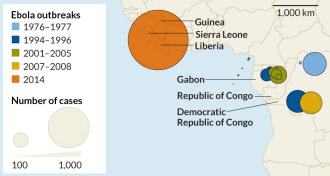 Genetics
GeneticsEbola genome clarifies origins of West African outbreak
Genetic analyses suggest that a single infected person sparked the ongoing Ebola epidemic in West Africa.
-
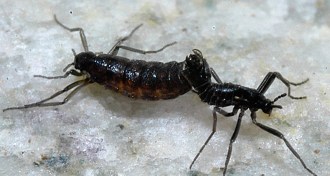 Animals
AnimalsAntarctic midge sports tiniest insect genome
Antarctic midge‘s genetic minimalism achieved by skipping a lot of repetitive stretches.
By Susan Milius -
 Genetics
GeneticsLong before Columbus, seals brought tuberculosis to South America
Evidence from the skeletons of ancient Peruvians shows that seals may have brought tuberculosis across an ocean from Africa.
-
 Genetics
GeneticsDebate rages over mouse studies’ relevance to humans
Last year, researchers said rodents are not good mimics of human inflammation; a new study says the reverse.
-
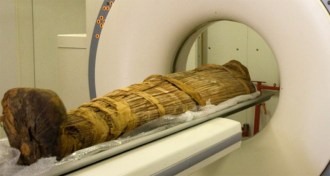 Health & Medicine
Health & MedicineMummies reveal hardened arteries
Mummy studies suggest heart disease is an ancient malady, not just the product of modern diets and sedentary lifestyles.
-
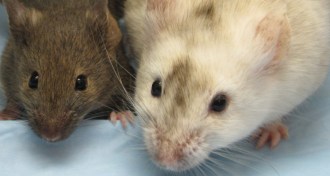 Genetics
GeneticsGene activity change can produce cancer
Scientists have long thought that epigenetic changes, which alter gene activity, can cause cancer. Now they have demonstrated it in a mouse experiment.
-
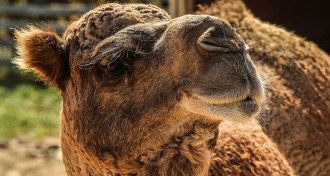 Genetics
GeneticsAirborne MERS virus found in Saudi Arabian camel barn
The air in a Saudi Arabian camel barn holds genetic fragments of MERS, a new study shows.
-
 Genetics
GeneticsHints about schizophrenia emerge from genetic study
From thousands of genomes, researchers pinpoint dozens of DNA changes that may underlie schizophrenia
-
 Health & Medicine
Health & MedicineTwo genes clear up psoriasis and eczema confusion
Psoriasis and eczema are often mistaken for each other, leading to mistreatment. Testing just two genes could eliminate this confusion.
By Nsikan Akpan -
 Genetics
GeneticsFinally, some solid science on Bigfoot
DNA analysis finds no Bigfoot, no yeti, two weird bears and one scientist on a quest for the truth.
-
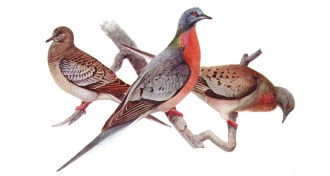 Animals
AnimalsPassenger pigeon population had booms and busts
DNA says the birds recovered from hard times — until people came along.
By Susan Milius -
 Health & Medicine
Health & MedicineSimple blood test detects heart transplant rejection
Heart transplant recipients whose bodies are starting to reject the new organ might carry genetic warning signs.
By Nathan Seppa